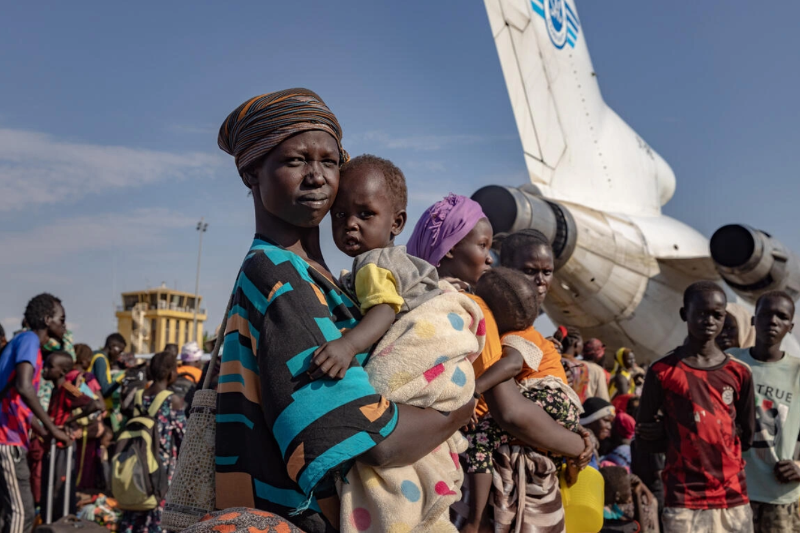

crisis in sudan experts raise concerns over deteriorating human rights situation as internal conflict continues
Each year, the International Rescue Committee prepares a list of countries most likely to experience a deteriorating humanitarian crisis. This year, Sudan comes at the top of the list, unfortunately, as a brutal internal conflict continues.
Serious fighting, mass displacement, an economic crisis and near collapse of the healthcare industry have created the perfect storm in Sudan. Conservative estimates suggest that the conflict has killed over 20,000 people and injured at least 33,000 others.
In October 2023, the BBC highlighted proof of the ethnic violence raging in Sudan since the beginning of the year. Satellite and social media data revealed at the time that 68 villages in Darfur had been set on fire.
Mr Mitchell, Member of Parliament of the UK, described that the humanitarian crisis in Sudan bore “all the hallmarks of ethnic cleansing”. It is the first time that the British government has used the strong term to highlight the deepening crisis.
Esam, an activist at the NGO Sudan Uprising Germany, has highlighted that the Sudanese army is playing a significant part in the high civilian death toll. The army is mobilising scores of people and not offering them enough protection, he noted.
The armed forces is apparently handing ammunition to civilians and telling them to defend themselves, but they have no chance against experienced fighters, he said, stressing that the army is doing nothing to protect the people.
The Sudanese army is also extremely brutal, the activist at the non-governmental organisation added, underscoring that the military primarily uses its air force that doesn’t have a precise system – one reason behind the alarming civilian death toll in Sudan.
There is no safe place in the country at the time, said Mohamed Chande Othman, chair of the UN Independent International Fact-Finding Mission. The UN probe has accused the armed forces of serious human rights abuses.
In an October briefing paper, the International Crisis Group stressed that: “Embroiling more actors in the turmoil risks exacerbating hostilities.” For the time being, the independent organisation is also sceptical about international mediation to find a solution.
The people of Sudan have long been facing a severe humanitarian crisis, even before the conflict. Long-term political instability and an economic crisis have left more than 15 million people in the country in need of urgent humanitarian aid.
The fighting has forced over 11 million people to leave their homes. The majority of them remain in Sudan, representing the largest displacement crisis globally. Humanitarian access has also been curtailed, making it hard for aid to reach those in need.
The raging conflict has decimated Sudan’s public infrastructure. The healthcare system is being troubled by an acute shortage of staff, funding and medical supplies, besides regular instances of attacks, looting and occupation.
Even prior to the outbreak of conflict, Sudan’s economy used to face rampant inflation and lack of essential goods, leading to protests across the country. Nearly half of the population is unemployed and the national currency has lost at least 50% of its value.
At least six employees of the U.S. Agency for International Development (USAID) have been put under formal investigation for speaking…
Prince Harry's links to African charitable groups have come under considerable scrutiny after revelations of human rights abuses and internal…
April's unemployment rate in Canada reached 6.9%, the highest in the subsequent period since November 2024. Statistics Canada's data demonstrates…
In a major development, India and the United Kingdom have signed a new agreement providing solutions for Indian workers temporarily…
Former President Donald Trump is taking legal action to strike down one of the topics on the forgotten list of…
As U.S. retailers like Walmart and Costco pursue alternatives to Chinese and Bangladeshi suppliers due to rising tariffs, India's garment…
This website uses cookies.
Read More